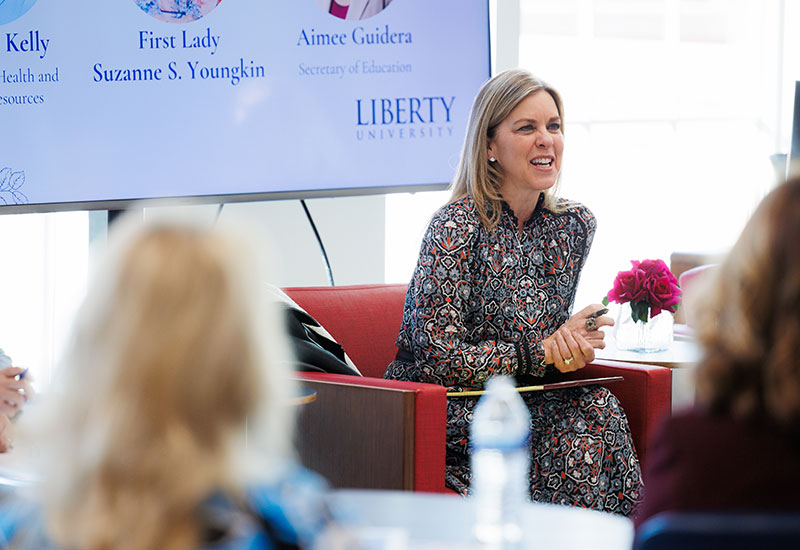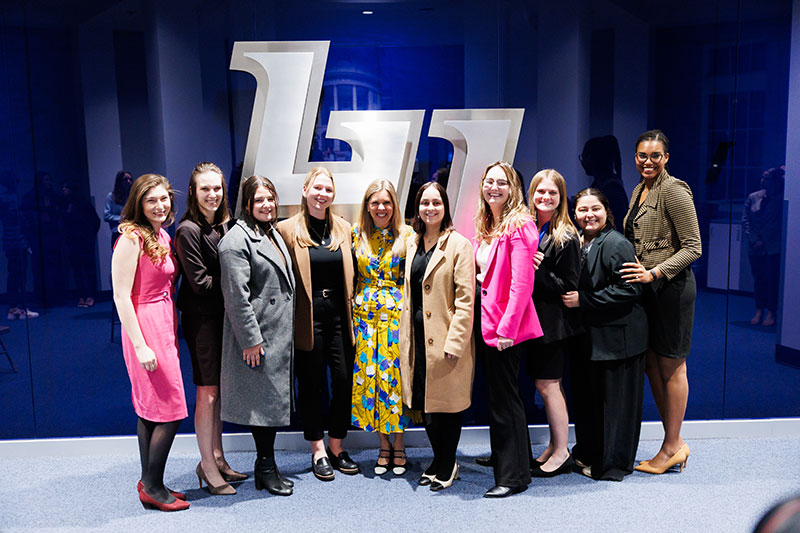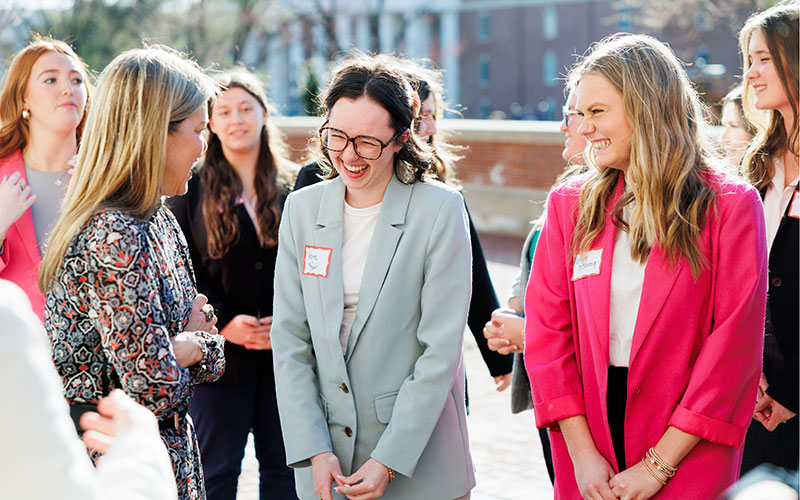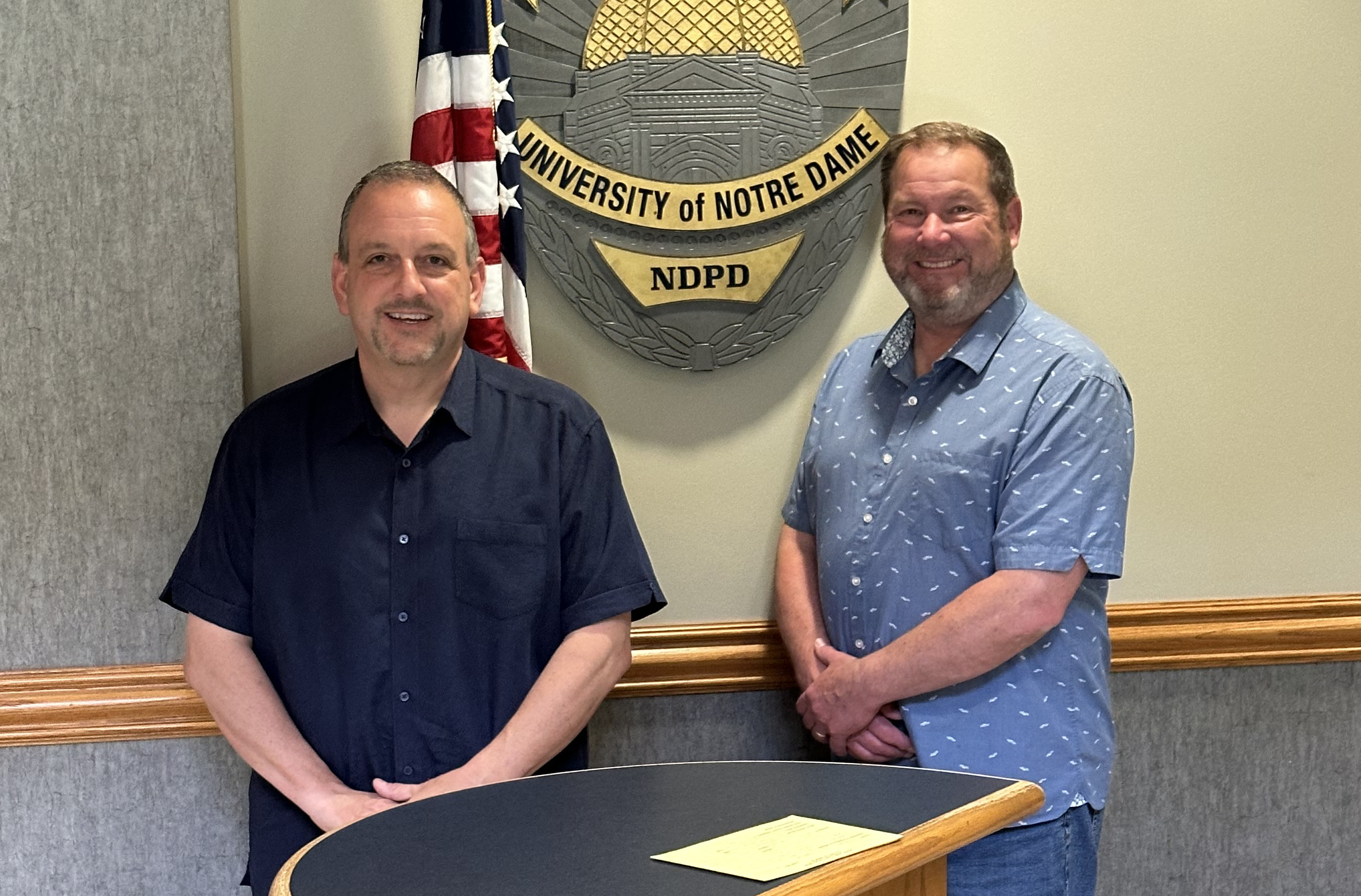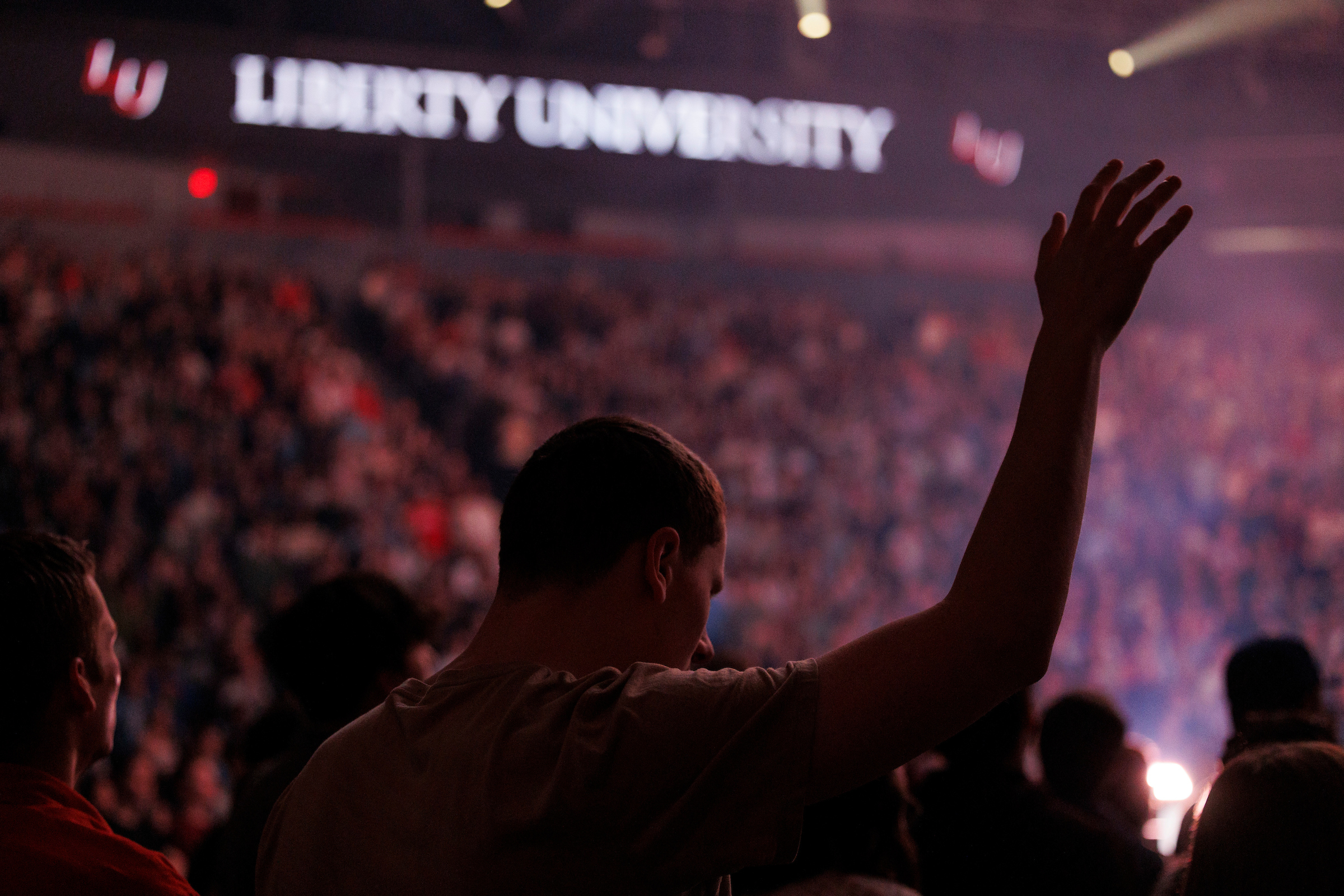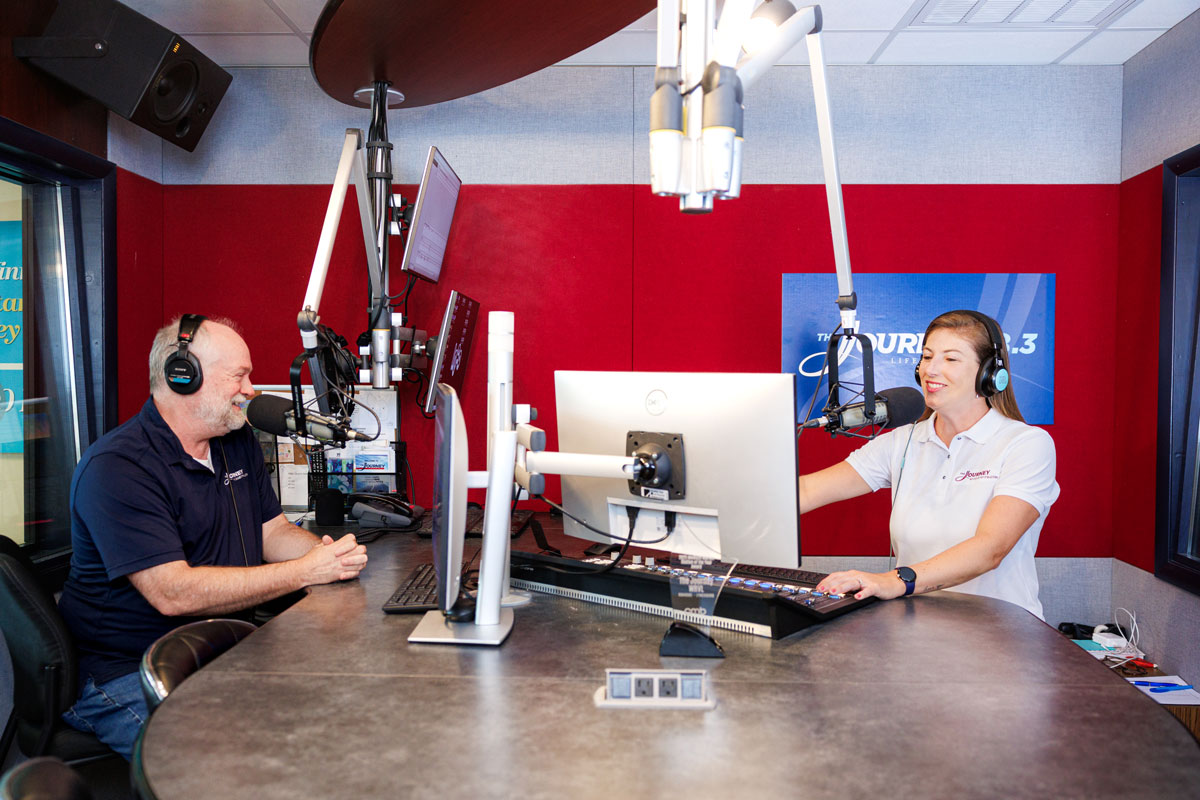Search News Archives
Filter News Articles
Additional Navigation
Virginia leaders discuss strides in youth mental health, education during ‘Sisterhood’ event at LU
March 5, 2025 : By Office of Communications & Public Engagement
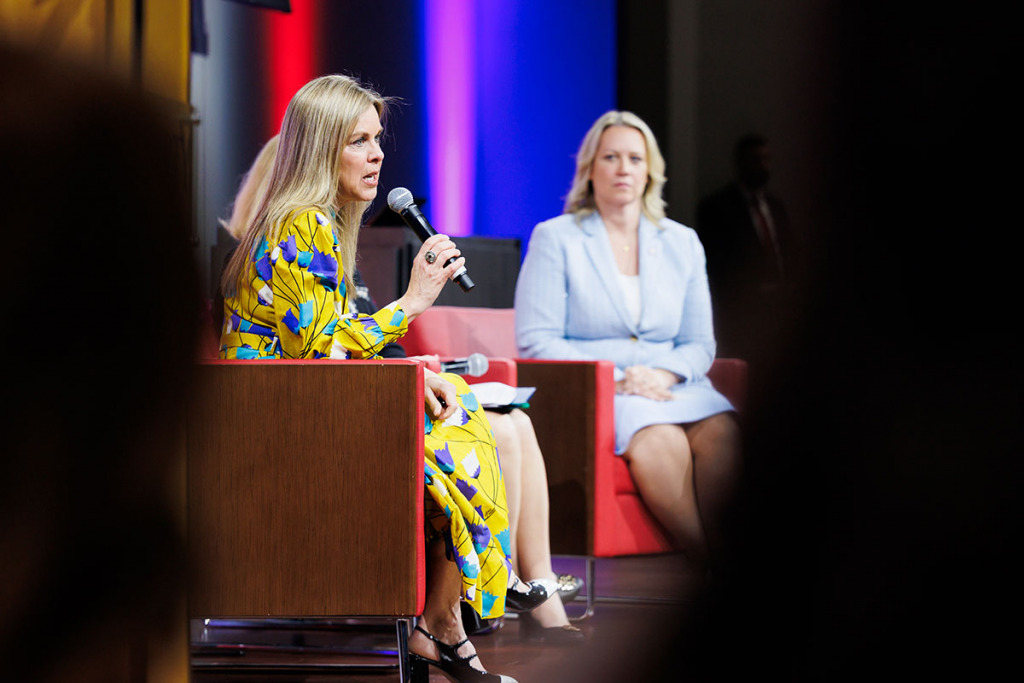
First Lady of Virginia Suzanne S. Youngkin joined members of the Governor’s Cabinet for a special event at Liberty University on Tuesday evening to celebrate the progress made to improve the lives of Virginia families and children and discuss the hard work that is still left to do.
The event, “A Sisterhood Gathering focused on Well-Being,” was held in the Towns Auditorium at the School of Business and open to female students and staff and invited members from the community. Youngkin facilitated the session with Virginia Secretary of Health and Human Resources Janet V. Kelly and Virginia Secretary of Education Aimee Guidera. Their visit was part of the first lady’s Strengthen the Spirit of Virginia’s Women+girls (W+g) initiative.
Liberty President Dondi E. Costin introduced Youngkin and acknowledged her statewide efforts to provide better access to behavioral health resources and workforce preparedness programs. The first lady’s initiative started in 2022, when her husband took office, with the goal of communicating state leaders’ everyday work and informing the public on ways to tap into valuable resources.
“Glenn was newly elected, and I was trying to figure out what God wanted me to do and I felt, like we all did, this sense of isolation because we were coming out of COVID,” she said. “People were still very concerned about being out in public. Many of our institutions and schools were still closed. So we started going around the Commonwealth and meeting with sisters, and it was wonderful to see the fellowship that was spawned from that.”
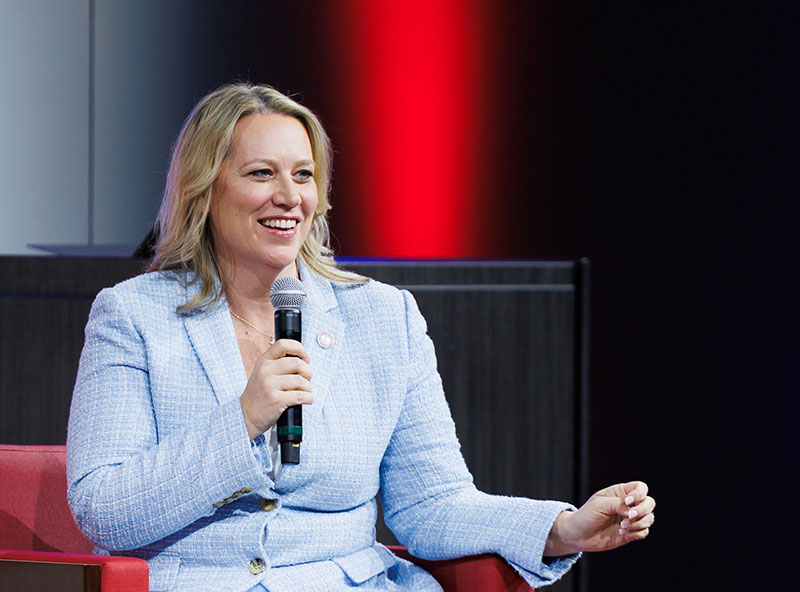
Throughout Tuesday’s event, Youngkin heralded the collaboration of Kelly and Guidera to make major advances in their areas, from relocating hundreds of children in foster care sleeping in local social services offices and hotels awaiting placement, to saving lives from fentanyl overdoses, to instituting the first statewide ban of cellphone use “from bell to bell” in Virginia’s public schools last fall.
Secretary Kelly, a Liberty alumna and adoptive parent, said it all comes down to a mantra regularly used by the governor, “How can I make Virginia the best place to live, work, and raise a family?”
Through Gov. Youngkin’s leadership and hefty investment of $1.4 billion in the Commonwealth’s behavioral health system, including the Right Help, Right Now plan, Kelly said the concerns are being met head-on at a challenging time when rates of depression in children have hit historic levels.
Kelly speaks from experience in dealing with the trauma associated with adverse childhood experiences as a mother who raised a child from foster care and a professional who has spent extensive time working with foster and adoptive families.
“I was very well versed with kids from hard places,” she said, “but when I became Special Advisor for Children and Families (to the governor, in her previous role), it was every kid … skyrocketing rates of anxiety, skyrocketing rates of depression, skyrocketing rates of eating disorder visits, especially during COVID. And so we went to the data.”
She gave some alarming statistics: 57% of teen girls in Virginia report being chronically hopeless or sad; suicide is the second leading cause of death for 10- to 14-year-olds; 40% of children from fourth through eighth grades have been approached by a stranger online; and 95% of youth are exposed to sexual content online.
Kelly said the top driver for these poor mental health outcomes in youth was social media — the apps and the addictive algorithms that power them.
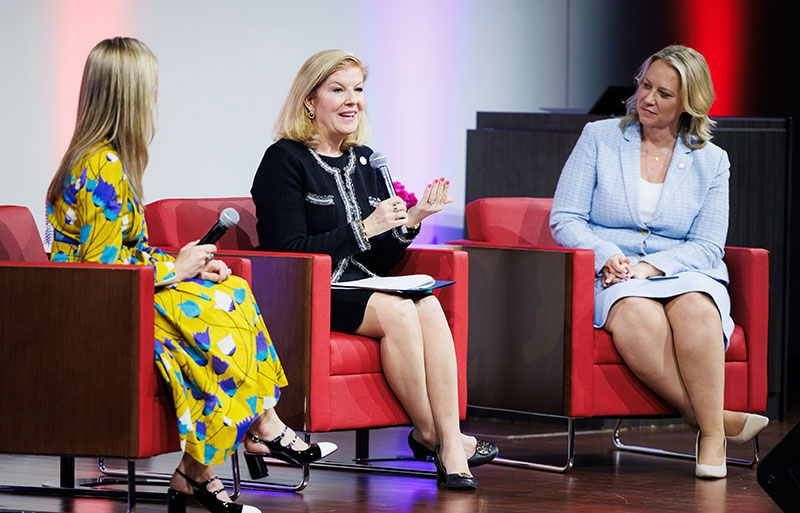
Kelly and Secretary Guidera’s team are partnering with the governor’s newly established Reclaiming Childhood task force to convene parents, educators, mental health experts, faith leaders, public safety officials, private sector technology experts, and community leaders to identify actionable solutions and provide resources to combat the negative effects of excessive social media use.
With the average child spending 33 hours on social media a week, Kelly said it will take more than a government solution.
“It’s going to take families and communities working together with the government. … At the end of the day, it’s going to be replacing that behavior with something positive. It’s going to be people like you just banding together, like you (Liberty) did with the digital fast here on campus (during February).”
Guidera said youth mental health has become a priority at every level of the government. Strides have been made to restructure the cabinet at the Virginia Department of Education to have a director of behavior health at the state level and to bolster drug education and awareness, provide more information and resources to parents, and increase the pipeline of professionals in our schools, sometimes the only place that children are able to access the services they need.
Virginia leaders are tackling all of this with a “holistic strategy,” she said, literally under the same roof, where they can collaborate on projects with a shared goal.
“The government cannot be the answer to everything,” Guidera reiterated, “and this is why these conversations that you (First Lady Youngkin) have been leading across the Commonwealth are so important and why you all being here tonight is so important. There are things that we’re doing as secretaries in charge of part of the government, really important things we hope are transformational steps that will continue long after we leave, but at the same time, real change happens when we, as citizens and neighbors and parents and daughters, make the changes happen when government doesn’t tell us to do it.”
She said the challenge starts with asking ourselves, “How do we be better role models for young people in our lives? How do we actually put down our phones and pick up a book?”
Addressing an action that made national headlines in the fall, Secretary Guidera said the governor’s ban on cellphone use in schools is proving beneficial.
“We’re already seeing incredible impacts. We’re hearing that it’s louder in the lunchroom. We’re hearing from teachers that they can teach an entire lesson and people are paying attention. We’re hearing from parents that their children are more involved, engaged, and excited to talk about their school day at the dinner table.”
 During a Q&A session, Guidera said her advice to the college students in the room who are embarking on a career of social responsibility is to view time as “our most important resource and our gift.”
During a Q&A session, Guidera said her advice to the college students in the room who are embarking on a career of social responsibility is to view time as “our most important resource and our gift.”
“I would encourage you to not waste your time on anyone or anything that does not matter and does not bring fulfillment and joy. That means jobs, that means relationships, and that means what you put your heart to work on and be grounded in what matters. And then live those values.”
Kelly, in recalling her time as a Liberty student, said her advice is simple: “Love God, love people. That’s it. I think if you do that, fast forward 27 years (like me), you will be very, very, very happy with your life.”
Youngkin, who emphasized many ways to volunteer in the community, including through Serve Virginia and the Youth Mental Health Corps, told Liberty students, “God’s going to surprise you.”
“I never thought that I would be sitting here … that I would be married to a politician. When you’re choosing a life partner, it’s really important to try to make sure that person is your best friend. … Find someone who helps you be your best self and who you are wholly committed to in making sure that that person is their best self.”
She closed by thanking Liberty for the opportunity.
“Thank you, Liberty University, for just stewarding all these young people and being such an important part of the lives of so many Virginians.”
Earlier in the day, the group met with students in roundtable discussions. They also attended Wednesday’s Convocation.
